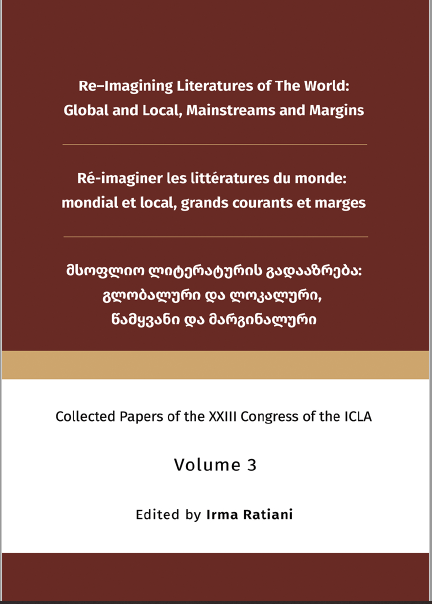The 1960s as a Landmark of Ukrainian Literary Emancipation (American and French Comparative Aspects)
Main Article Content
Abstract
The term “global sixtieth” has persisted in historiography since the 2000s denoting the revolutionary movements united by common discontent with the political, socioeconomic, and cultural status quo. Although their national literary manifestations differed, they appear to be interconnected regarding the attempts to establish other political and aesthetical orders, hence counterculture. This comparative article explores the liberation effect of the counterculture of the 1960s manifested in Ukrainian literature contrasted to American and French. It is stated the former pursued double emancipation – from the imposed ideological system, and centuries of national oppression – through popular poetry. In the Free Bloc of ostentatious civil liberty, the 1960s literature is marked as aesthetically and ideologically modernized. American literature expands towards the colonized voices (Black Arts Movement), the gender spectrum (B. Friedan, S. Plath, G. Greer), and the anti-establishment alternatives (Ken Kesey, R. Brautigan, T. Wolfe). A European counterpart is represented by avant-garde tendencies (Tel Quel, Oulipo, Le théâtre de l'absurde) complemented by feminist and postcolonial as well (écriture féminine, Afropessimism, Négritude reinterpretations). Such “erotics of art” advanced countercultural opposition to the dominant faith and ultimate values of the pre-revolutionary era. In socialistic Ukraine, deprived of the freedom of speech and direct action, the literature field becomes a battlefield for evasive political maneuvering. Instead of introducing new trends, as in the case of the USA and France, the countercultural gesture of Ukrainian “sixtiers” (Mykola Vingranovskiy, Lina Kostenko, Vasyl Symonenko, and more) was to turn to the classic and modernist Ukrainian heritage to revive its threatened discourse. They promoted engaging genres such as lyric poetry and romance, approaching popular leitmotifs as national self-awareness and personal values – themes, deafened under the totalitarian reign of the USSR. By virtue of popular poetry, the sixtiers did a “museum work” of resuscitating Ukrainian identity and preserving it for the next generations. Thus, paradoxically, the Ukrainian counterculture of the 1960s was regressive aesthetically, but pivotal politically.
